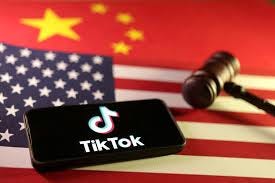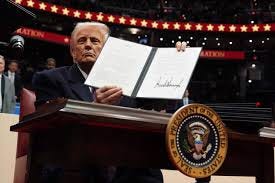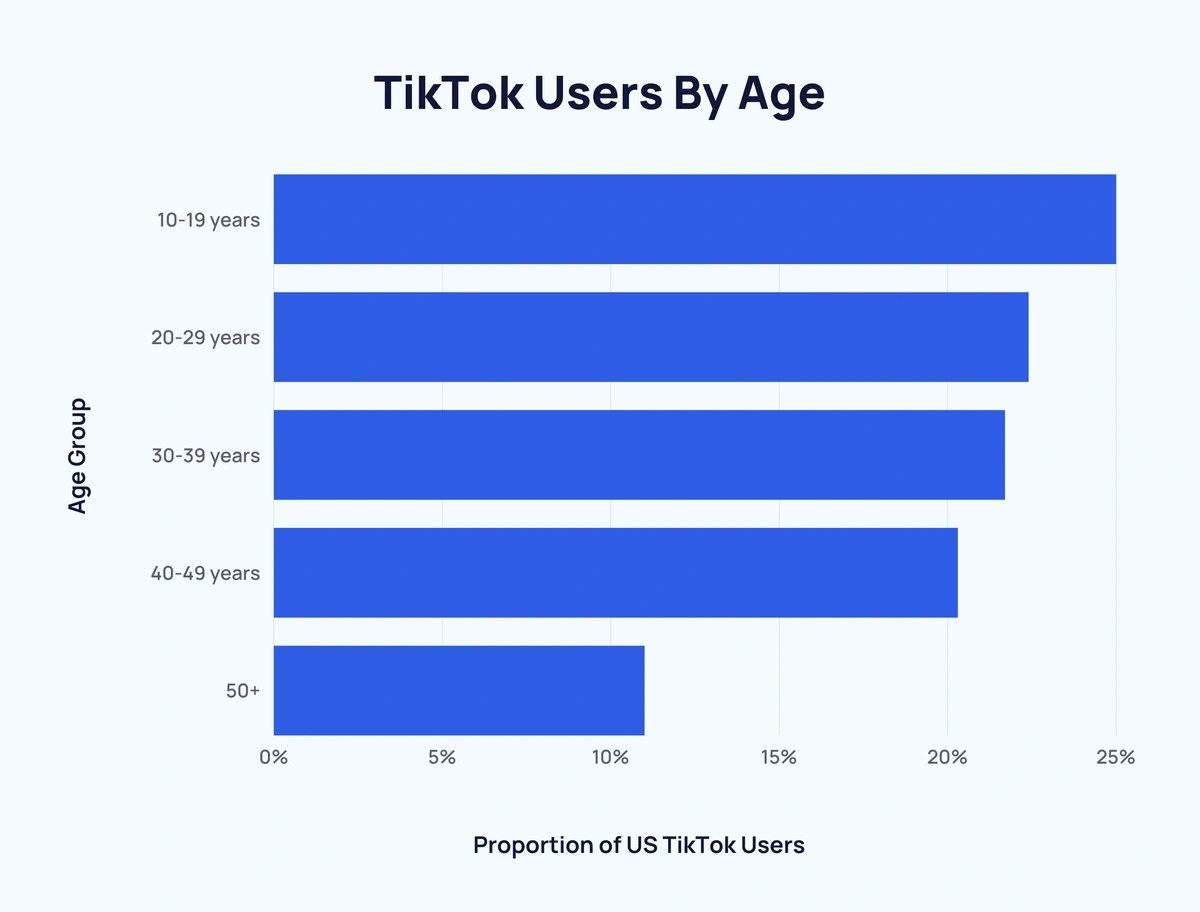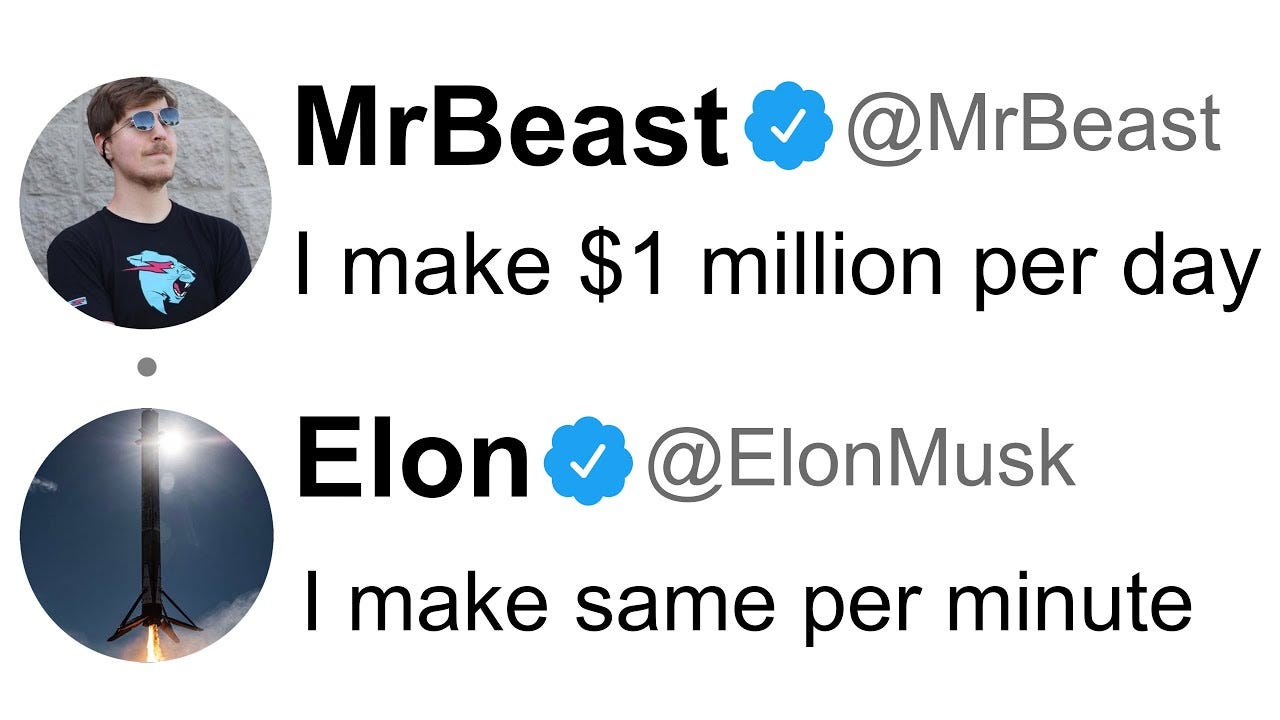What It Means to Trump the TikTok Ban
Foreign governments quietly harvest data from algorithms that direct and amplify the worst of human behaviour, especially from the most vulnerable, who Trump abandons any notion of protecting.
Trump has issued an executive order for a 75 day wait before TikTok is officially “banned”, as ordered by Congress, and no longer available on app stores for American users. He blatantly dismisses the national security threat TikTok poses to children, saying “Is it that important for China to be spying on young people? On young kids watching crazy videos?” and that “we have bigger things to worry about”… but are there bigger things to worry about than protecting the rights and freedom of the youngest and most vulnerable segment of our population?
Privacy, in an age where our freedoms seem to be more and more infringed upon, is incredibly important for the young. After all, they inherit the post-surveillance society. They are our posteriority. Young adults make up the biggest demographic on the app. What they click on and engage with affects the algorithm, which in turn distorts social and consumer behaviours.
Kids, through social media and algorithms, as well as directly influencing their parents and peers to buy things, essentially dictate the flow of money in much of the global economy. As TikTok becomes increasingly relevant to election outcomes (Germany with AfD, Romania, New Zealand and more), suddenly this claim that “spying over children isn't a big deal” could end up flying in the face of travesty, à la Cambridge Analytica. Remember what happened back then, all the way in 2018? An old adage way back from the 1890s succinctly captures the problems with social media algorithms today: if it bleeds, it leads. In other words, content that is disturbing, polarizing, or downright harmful tends to trend because it elicits a deep response from people. When these responses are amplified in social bubbles, or misinformation is propagated en masse, then it changes how we behave in the real world too.
A report from the Center for Countering Digital Hate (2023) shows that TikTok's algorithms can expose teens to harmful content (e.g., eating disorders, extreme dieting, or dangerous stunts. Other countries that have banned TikTok, for better or for worse, include Afghanistan, Albania, India and Pakistan. My own stance is that TikTok should not be banned outright, primarily because it was one of the few consistent sources of “on the ground” coverage in Gaza, and could be especially important in countries like Afghanistan right now, who are suppressing news coverage. However, with these high-impact algorithms, there clearly needs to be more guardrails in place for the physical and mental safety of our most vulnerable.
Trump only cares about TikTok because it helped him garner young voters. While nationally the youth vote favored Kamala Harris over Donald Trump by 6 points (52% to 46%), there were major differences by state, and there appears to be an overall trend of increased youth support for Donald Trump compared to the 2020 presidential race. During his first term in 2017, Trump sought to ban TikTok, citing national security concerns over its Chinese ownership. Now Trump proclaims he has a 'warm spot in my heart' for TikTok as app store ban looms in January, and the CEO of ByteDance came to his inauguration. Remember, most people weren't allowed into the ceremony except the tech elites. Nothing new about Trump not giving a rat's ass about the actual American people.
But Trump's executive order does not overturn the ban. Instead it tells the U.S. attorney general not to enforce the law for now - something experts had expected would be his first move. That buys time for his administration to, as the order puts it, "determine the appropriate course of action." While I have covered the many concerns around the TikTok app in great detail, the story is going to keep evolving. So, stay tuned for more updates in this chaotic timeline we call our own.
Trump has suggested restructuring TikTok ownership as a joint venture, proposing a 50-50 partnership between "the United States" and ByteDance, though he did not elaborate on implementation details. This stance directly conflicts with the Supreme Court's January 17 decision that upheld the TikTok ban legislation. The Court stated the ban was "designed to prevent China - a designated foreign adversary - from leveraging its control over ByteDance to capture the personal data of U.S. TikTok users". This is also quite a big move towards the U.S. potentially having a state-owned social media algorithm, even while Trump himself is the biggest shareholder of his own media platform, Truth Social.
Two prominent tech figures, Jimmy "MrBeast" Donaldson and Elon Musk, have expressed interest in acquiring a stake in TikTok, which would require 50% American ownership. "I might become you guys' new CEO! I'm super excited!" Donaldson announced from a private jet, following up with a promise of $10,000 to five random new followers. Not to mention Microsoft as an interested investor, too.
Oracle founder Larry Ellison has also emerged as a potential stakeholder (who is also a big part of project Stargate). This guy should not have as much power as he does, more on that later.
Bloomberg recently reported that Chinese authorities were exploring the possibility of selling TikTok to Elon Musk, who owns X (formerly Twitter) and ranks among the world's wealthiest individuals. Musk addressed the situation on X, stating that while he has historically opposed banning TikTok, "the current situation where TikTok is allowed to operate in America, but X is not allowed to operate in China is unbalanced. Something needs to change."
At a news conference Tuesday, Trump was asked by a reporter if he would be open to Musk buying the platform. "I would be if he wanted to buy it, yes," the president replied."I'd like Larry to buy it, too," Trump added.
If Larry Ellison gets hold of it, the move from a U.S. Constitutional Republic thinly veiled as a democracy, towards a full-fledged Plutocracy could happen overnight. He talked favourably of AI-driven surveillance systems to ensure “citizens will be on their best behavior”. Then again, with Musk having both X and TikTok under his control, he can quite literally tamper with the platforms and algorithms that dictate the news and communication of billions of people. Then there's MrBeast, the quintessential Influencer, King of Youtube and Virality. Jimmy doesn't (yet) have the reputation or the stigma of Musk, but, he unfortunately partners up with some bad cats himself. MrBeast partners quite close with Logan Paul and was slow to pay for these eye surgery bills. The thing is, in all the excitement of “curing the blind” for a 30 minute Youtube video, he seemingly forgot to check that his million-dollar company actually paid for the surgeries that healed the patient's vision.
"It's going to be a winner that's likely to be politically sympathetic to President Donald Trump," said Anupam Chander, a law professor at Georgetown University, who also pointed out that a 50-50 joint ownership model does not comport with the law's requirements, which might prompt Trump to pressure Congress into revising the law.
The U.S Congress has already passed the law to ban TikTok. In March 2024, the Protecting Americans from Foreign Adversary Controlled Applications Act passed the House of Representatives. The House at that time was held by the Republicans, and the bill was then supported by the Democrat-controlled Senate, before President Joe Biden signed it into law major Chinese digital platforms in the U.S. It's estimated 152 million Americans use online shopping hub Temu every month, which has their home addresses and other personal data TikTok doesn't have access. China has a clear say on who this sale goes to, due to their “golden share” in the company if nothing else.
Critics argue that concerns about Chinese spying might be overstated, as apps like Facebook and Instagram also collect massive amounts of user data… but do the actions of one enemy somehow cancel out those of another? They are both preying on us, merely in the favour of different stakeholders (and in this case, shareholders).
Foreign governments having access to your data yields unique risks. Whether you're being used as a data point for targeted advertising, shopping manipulation, or algorithmically-recommended political misinformation, you are now nothing but an economic unit to be pushed back and forth between Big Tech and Government Administrations across many different territories.
With the Trump administration accepting nearly $20 billion from Zuckerberg as well as the other Big Tech companies (and a hell of a lot more from Musk), we are seeing the emergence of a tech oligarchy centered around TikTok viewership. It affects young peoples voting. TikTok has amplified this effect. Trends like "TikTok made me buy it" have driven massive spikes in sales for certain products, such as the viral Stanley tumblers or beauty products like CeraVe moisturizers.In 2020, the feta pasta recipe that went viral on TikTok led to stores across the U.S. selling out of feta cheese.
The effect on urbanization and technology on today's youth cannot be overstated. Mental health issues, disassociation and apathy are routine experiences for a huge chunk of them. Algorithms have contributed towards a more isolated society, even while promising connection and community.
ByteDance face penalties of up to $US5,000 per user if they're found to be in violation of the law — fines that could end up in the billions, given the app's current popularity. With TikTok facing a potential U.S. ban following the Supreme Court's January 19 decision, its 170 million American users are exploring alternatives. Many are migrating to established platforms such as:
RedNote (Xiaohongshu) - Despite rising popularity, cybersecurity experts warn it faces similar privacy concerns as TikTok, being Chinese-owned with opaque data collection policies.
Lemon8 - TikTok's sister app, combining Instagram and Pinterest-style features, focusing on lifestyle and aesthetic content.
Meta Platforms - Though established, recent controversial policy changes under Zuckerberg, including removal of fact-checkers and DEI initiatives, have caused some creators to hesitate.
YouTube Shorts - Offers familiar features and three-minute video format, though its algorithm isn't considered as engaging as TikTok's, probably due to lower popularity.
Clapper - Targeting older demographics (Gen X and Y), distinguishing itself from TikTok's youth-focused approach.
Triller - Differentiates itself with AI-powered music synchronization tools for creators.
Read on to learn more about the journey leading up to the TikTok ban.












